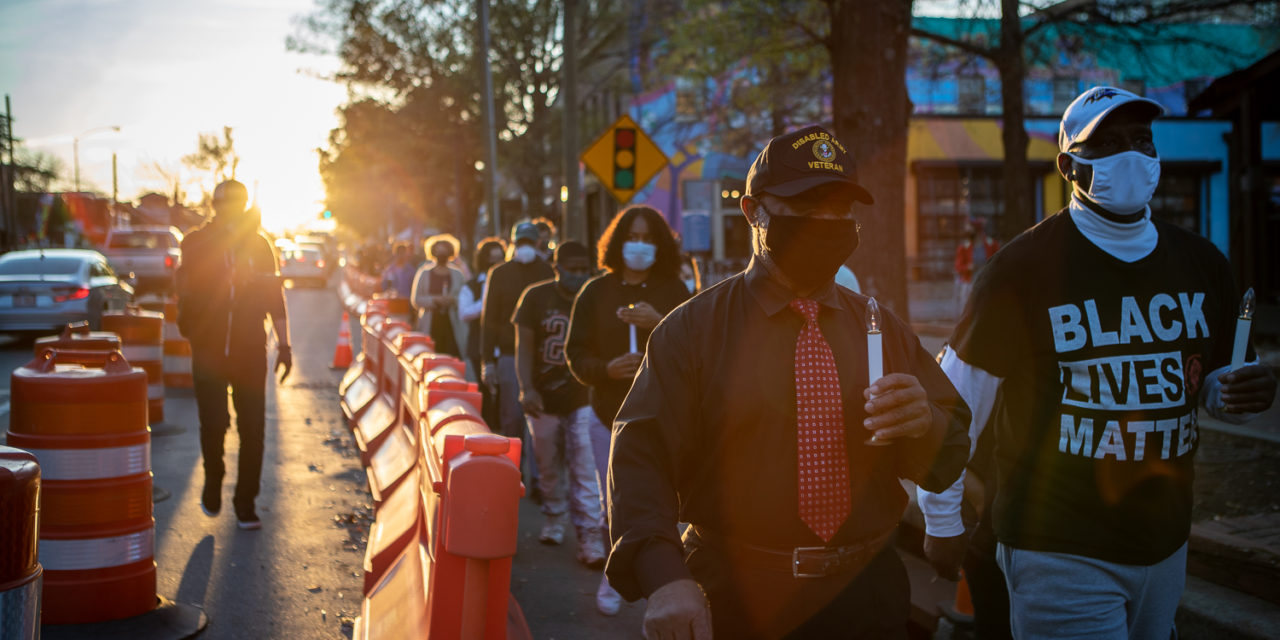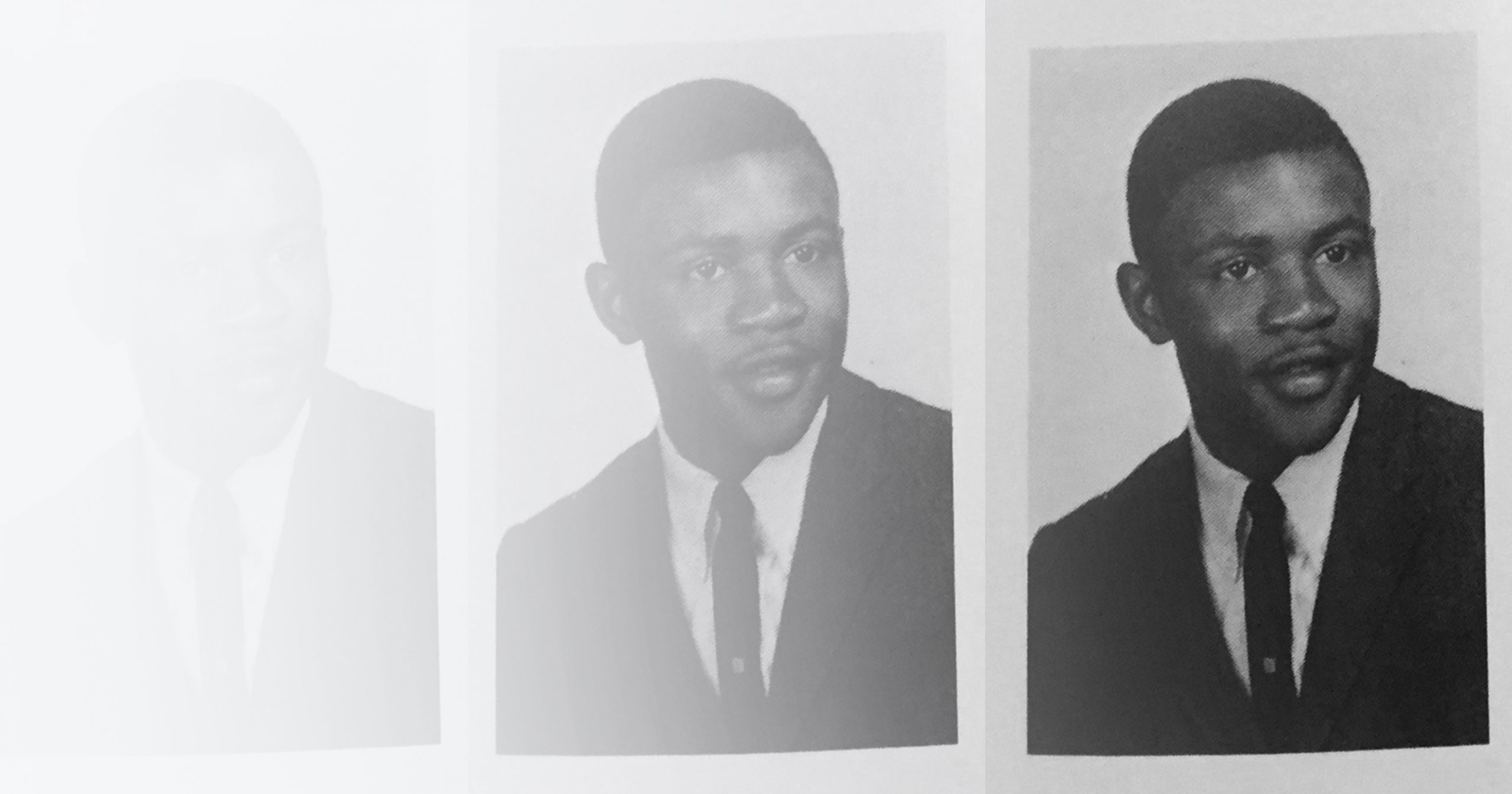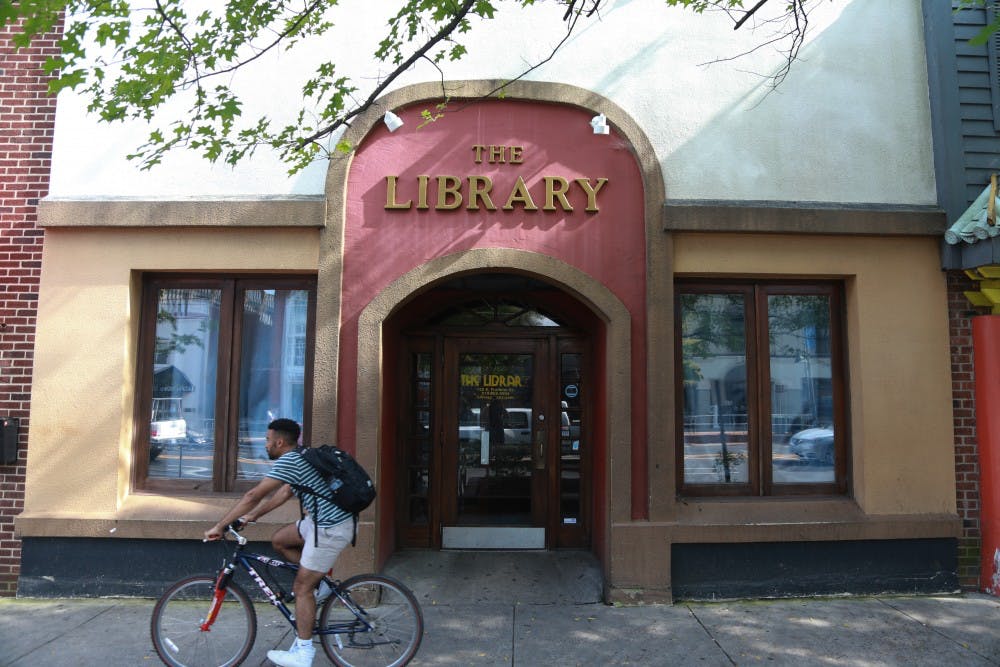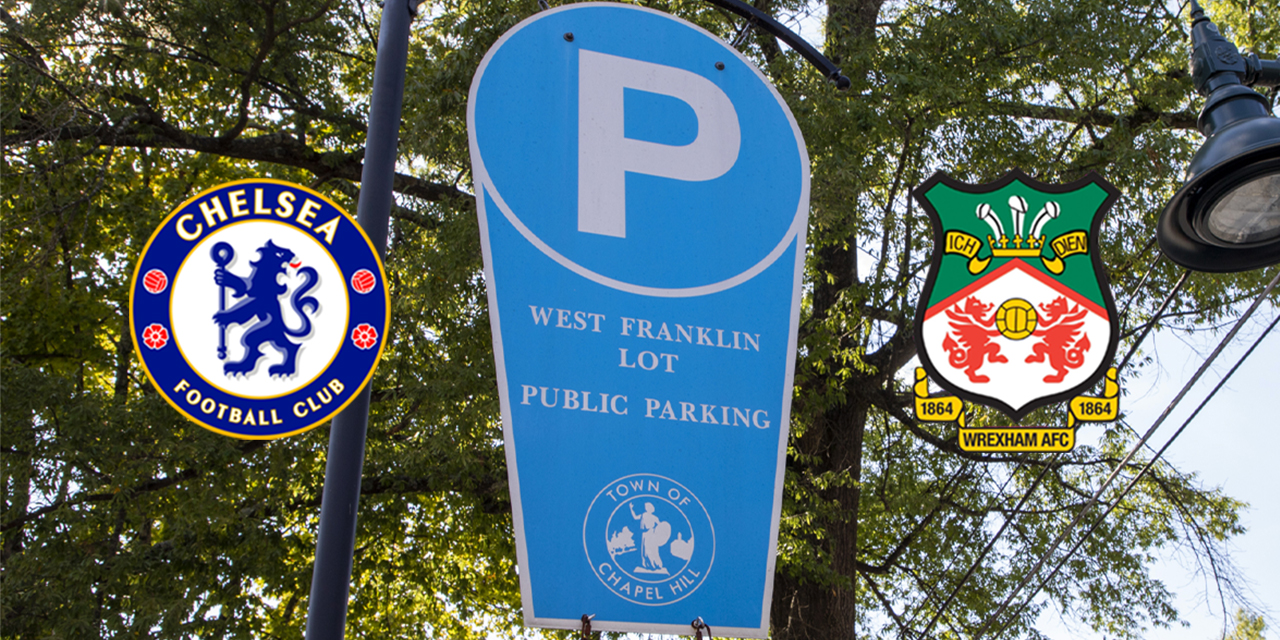Fifty years have passed since the murder of James Cates on UNC’s campus, but the pain of his Chapel Hill community still lingers.
Family, friends, elected officials and other community members gathered Saturday in the Northside neighborhood where Cates lived to honor the anniversary of his death. Stabbed by white supremacists during an altercation, the 22-year-old Black man died after he failed to receive proper medical attention during the early morning hours on November 21, 1970.
Terrence Foushee, a cousin of Cates and a son of state Senator Valarie Foushee, spoke at the ceremony and urged the community to have deeper conversations about systemic racism. He said while Chapel Hill may feel like a progressive bubble in the south, his own experience reflects how all community members must be involved in addressing racism and injustice.
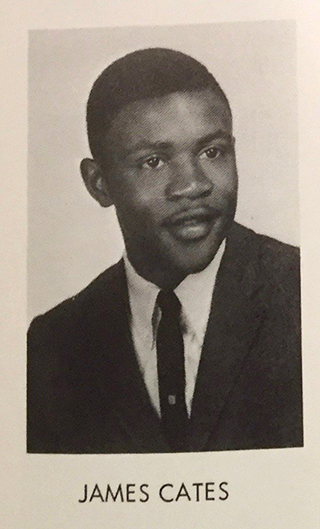
James Cates, a Northside resident, died on November 21, 1970 after being stabbed outside UNC’s Student Union. (Photo courtesy of the Town of Chapel Hill.)
“Although Chapel Hill has afforded me a lot of opportunity,” he told Chapelboro, “my mom taught me to understand my skin is still sometimes something that people see as an issue or something to be feared. I’ve always had to have that double consciousness and to understand that [perspective] of myself being a Chapel Hillian and an American, but also a Black man.”
Many community members shared and expressed Foushee’s sentiments this past summer during a nationwide period of reckoning against racial injustice following the deaths of George Floyd and Breonna Taylor. Cates’ death, while at the hands of motorcycle gang members, was likely a result of the same systemic racism.
Recent reporting on Cates’ story revealed the fight between Black community members and the Durham-based white supremacists broke out following an all-night dance party to improve race relations. Eyewitnesses to Cates’ murder recall after the biker gang stabbed the 22-year-old, authorities failed to quickly transport the bleeding man to the hospital. Chapel Hill Police investigating the incident did not arrest any of the motorcycle gang for their actions, reportedly sending those at the scene home. No one was ever convicted in Cates’ death.
Similar to such demonstrations held earlier this year, community members marched down Franklin Street and shared stories at the Peace and Justice Plaza. Starting at the Hargraves Community Center on North Roberson Street, participants walked with lit candles and stopped at the St. Joseph CME church for prayer. At the public plaza, a display with flowers, a photo of Cates and messages to his family were set up in his honor.
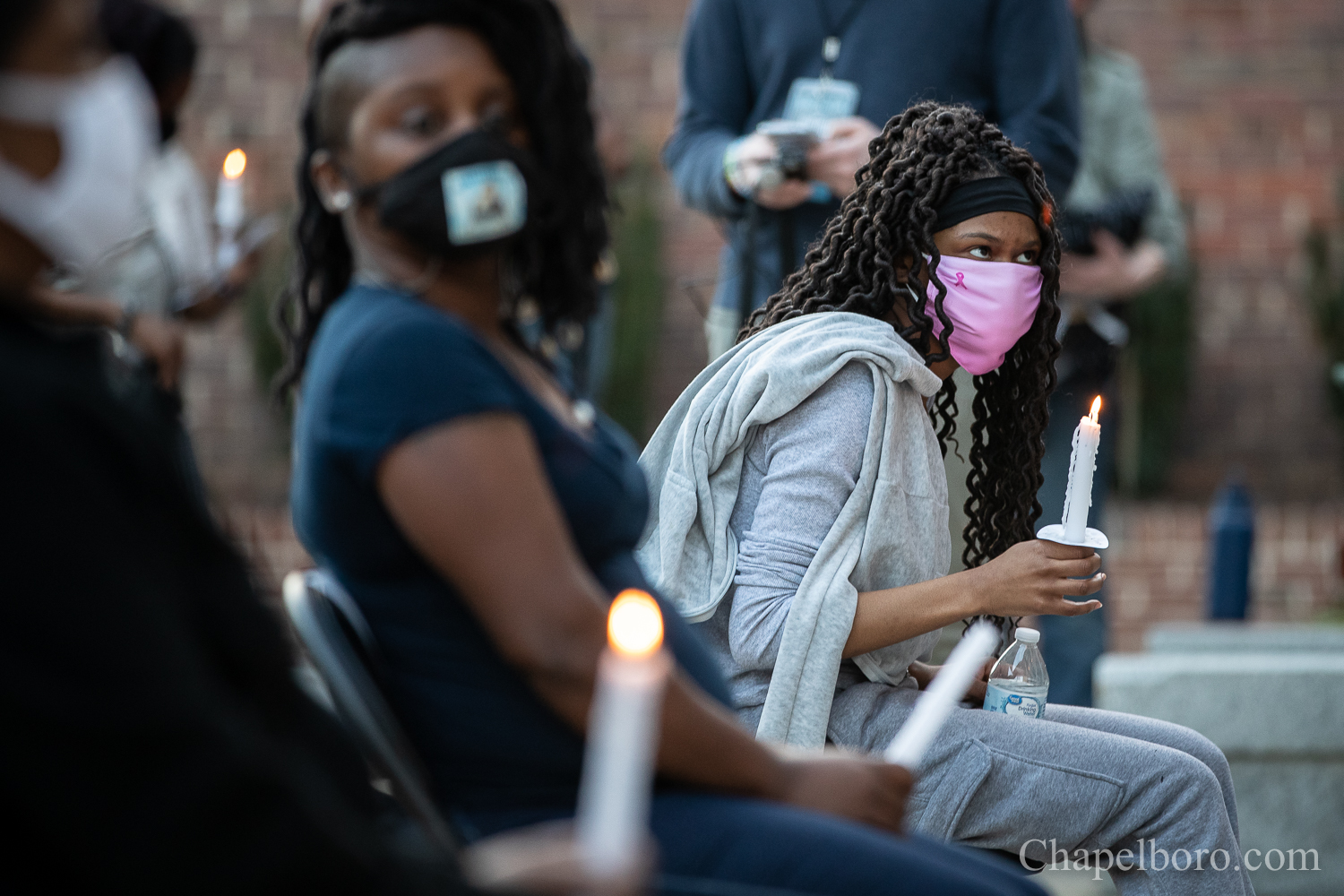
Relatives of James Cates sit and listen to a ceremony reflecting on his life and death in Chapel Hill’s Peace and Justice Plaza.
Foushee said the 50th anniversary of his cousin’s murder falling in the same year as this nationwide recognition of injustice was an opportunity to continue pushing the Chapel Hill community to grapple with its past.
“I think it’s forcing us to understand that, even though we’ve discussed it many times among the Black community but [not] the community at-large, we are not living in a post-racial world,” said Foushee. “Until we are able to gather on all fronts, we won’t see the change that we want.”
Five decades later, local institutions are working to shed more light on what happened to Cates. The Town of Chapel Hill, UNC and the Center for Study of the American South are all partnering with the remaining relatives to the Cates family to properly document his tragic death.
Danita Mason-Hogans, a Chapel Hill community member who helped organized Saturday’s event, said it means a lot to her that as the world works to address oppressive systems, her community is focusing on improving equity and collaboration.
“It means so much that the town, the university, the community, the family…all of whom have been affected by what happened 50 years ago to Mr. Cates, look at [his death] with fresh eyes,” said Mason-Hogans. “We often find that when we re-evaluate social justice issues, the people who experience a lot of this pain don’t have the resources they need to tell these stories. I think [this collaboration] will prove to be very fruitful.”
More information regarding Cates’ life and death can be found on the Chapel Hill Community History website.
Chapelboro.com does not charge subscription fees. You can support local journalism and our mission to serve the community. Contribute today – every single dollar matters.

